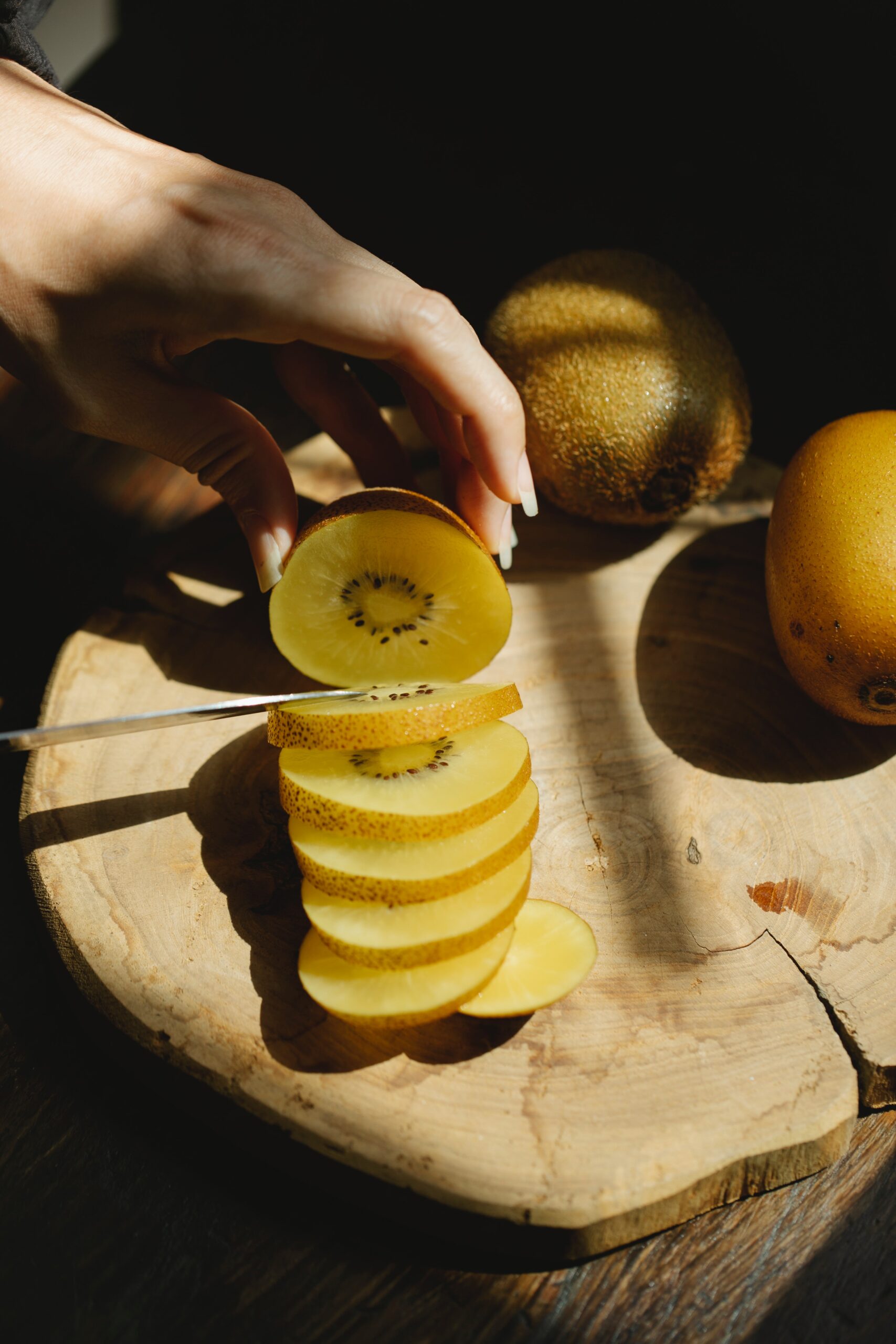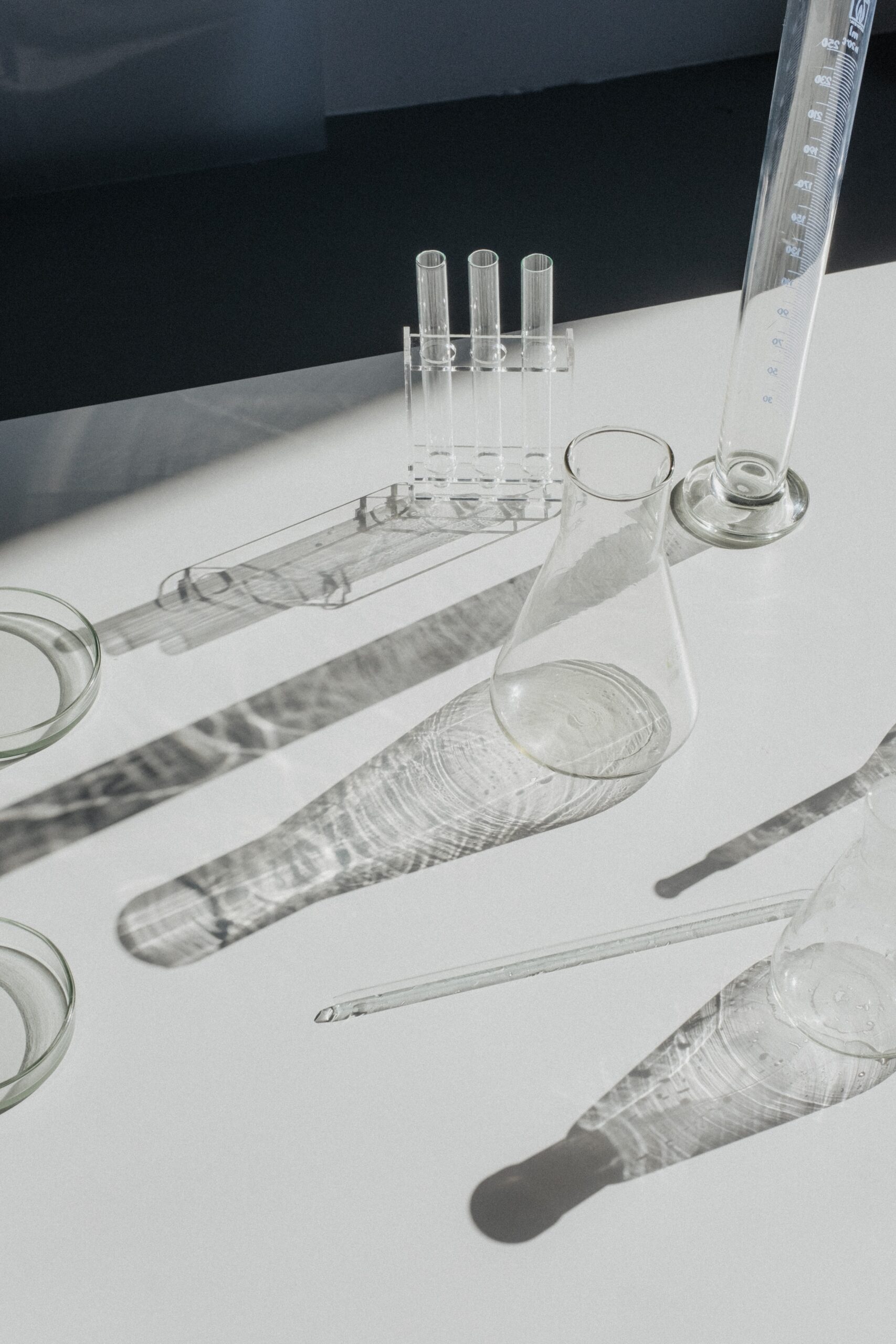Embarking on the journey to becoming a parent is a deeply personal and emotional experience, especially for those who have weathered the storm of fertility challenges. We understand the emotional toll that months, or even years of struggles can take – from every fertility treatment, glimmer of hope, and heartbreaking setback.
We hope to be a beacon of hope to those who have faced the heartache of fertility struggles and a resource that empowers women with evidence-based insights, nurturing your emotional and physical well being throughout the entire fertility journey.
Fertility is defined as the ability to conceive and carry a pregnancy to term and is a delicate balance influenced by many factors. Sadly, the rates of infertility, the inability to become pregnant after a year of trying, are on the rise. In fact, one in six couples worldwide struggle with infertility.
Understanding how diet and lifestyle impact fertility is fundamental for those dreaming of starting a family.

How Diet & Lifestyle Can Impact Fertility
Fertility is an emotionally and physically complex topic and unfortunately, there’s no universal solution. While genetics do play a role, there are steps we can take through diet, lifestyle, and targeted supplements to give your body the best chance of becoming pregnant.
Part of naturally supporting your fertility is understanding what factors influence fertility.
Hormonal imbalances and female fertility are intricately connected. Sex hormones influence the reproductive organs, menstrual cycle, and ovulation. Even a slight hormonal imbalance can affect the process of becoming pregnant. The most common causes of infertility are hypothyroidism and Polycystic Ovarian Syndrome (PCOS).
Other contributing factors include:
- Hormonal imbalances – especially related to ovulation
- Chronic stress
- Inflammation, oxidative stress
- Over or underweight
- Nutrient deficiencies
- Poor gut health
- Medical or genetic factors – fibroids, fallopian tube blockage, endometriosis, STDs, pelvic inflammatory disease
The good news is that we can take proactive steps to support fertility with diet and lifestyle adjustments.
Food & Diet Recommendations for a Fertility Diet
The goal of diet intervention for fertility varies depending on the person. In general, balancing blood sugar, supporting hormone balance, detoxification, and getting enough of the right foods are key!
How do you do that? Start with these big ticket items:
1) Whole Foods
Prioritize whole foods over processed foods to nourish your body with plenty of vitamins, minerals, and fiber.
- The term ‘whole foods’ refers to single ingredient foods that are minimally processed and contain all their edible parts. Processed foods, on the other hand, are missing some of their original parts and/or have additional substances added to them. Many processed foods also have sugar, preservatives, color and flavor added to them.
- For example:
- Refined grains like flour and white rice are missing the bran and germ that contain fiber, vitamins and minerals. Instead of boxed cereal or crackers, opt for whole grains like oatmeal, buckwheat, popcorn and quinoa.
- Sweeteners like sugar and syrup are missing water, vitamins and minerals. Instead, choose fruit for extra phytonutrients.
- Processed meats like sausage or bacon might contain harmful chemicals. Instead, choose high-quality animal proteins like grass-fed beef or pasture-raised chicken.
- Eating whole foods means you maximize your nutrient intake and limit your consumption of unhealthy additives. Even better, the healthy compounds in whole foods often have a synergistic effect – meaning a vitamin C rich orange has a greater influence on your body than taking a vitamin C supplement.
2) Colorful Foods
Eat a variety of colorful foods to maximize your nutrient intake, especially antioxidants and phytonutrients. Make it a game to see how many different colors you can include at each meal. In general, the richer the color, the more nutrients it contains.
- Add a handful of dark leafy greens to scrambled eggs.
- Blend blueberries into your morning smoothie.
- Top a salad with pomegranate and pumpkin seeds.
- Include purple foods like red cabbage, purple cauliflower or purple potatoes in a stir fry.
3) Macronutrients
A fertility diet hinges on an appropriate amount of macronutrients (protein, fat, carbs) for your body. Some people tolerate different amounts of these nutrients and it’s important to find the threshold that works for you.
- Choose high-quality proteins like grass-fed meat, pasture raised chicken and eggs, wild-caught salmon, full-fat dairy, lentils, beans and tofu.
- Consume plenty of hormone-healthy fats such as olive oil, coconut oil, avocado, nuts, seeds, ghee, egg yolks and fatty fish.
- Add fiber to every meal with nuts, seeds, vegetables, fruits and whole grains.
4) Blood Sugar Control
Balance your blood sugar with protein, fat, and fiber at every meal to support healthy hormones and ovulation.
- Prioritize a high protein breakfast, aiming for 25 to 35 grams of protein, so you never get on the blood sugar rollercoaster. Examples could look like:
- Three whole eggs
- One whole egg + half cup egg whites
- One cup Greek yogurt or cottage cheese
- Four ounces wild smoked salmon
- One and a half scoops of a high quality protein powder in a smoothie or yogurt
- Reduce added sugars and opt for naturally sweet options like pure organic stevia or monk fruit. Added sugars are sweeteners that are added during the processing of foods but don’t add health benefits and often result in blood sugar spikes. There are many types of added sugars like cane sugar, brown sugar, dextrose, fructose, syrups and honey, so make sure you’re reading nutrition facts labels and avoiding these when possible.
- Eat every 4-5 hours and avoid snacking when possible. If you do need a snack, make a protein rich choice such as hard boiled eggs, Epic or Chomps meat sticks, roasted edamame, greek yogurt or cottage cheese.
- If possible, go for a 10 minute walk after eating, or at the very least, tackle some chores after a meal to get you moving. You could clean the kitchen, do some laundry, take out the trash, or anything else that keeps you moving.
- Drink a glass of warm water with a tablespoon of apple cider vinegar before meals to help your muscles absorb the glucose in your meal.
- Consider trialing a continuous glucose monitor like Veri to better understand how your body responds to different foods.
5) Hormone Balance and Detoxification
Support hormone balance and detoxification. Healthy fats and protein are the building blocks of hormones, so eating enough of these macronutrients is essential. On the other hand, detoxifying excess hormones is also important for fertility.
When excess hormones, toxins, or metabolic byproducts have been detoxified, they’re drawn into the stool for excretion. When stool sits in the colon for too long (which can happen when you are experiencing constipation and/or slow motility), those hormones and toxins can recirculate in the bloodstream, contributing to an excess. Your body already worked hard to get them out once, don’t make it do it again!
Hormones are detoxified by the liver and digestive tract, and you can support both with these foods:
- Include bitter foods like grapefruit, arugula, dark chocolate, asparagus, artichokes, and kale to stimulate digestion.
- Eat plenty of cruciferous vegetables. Crucifers contain compounds called DIM and IC3 that break down and remove excess estrogen from the body, preventing it from recirculating and contributing to hormone imbalances. Examples of crucifers include broccoli, cauliflower, kale, cabbage, bok choy, arugula, radishes and broccoli sprouts. In fact, broccoli sprouts are one of the best things you can eat for liver detoxification!
- Drink enough water and eat enough fiber (both insoluble and soluble) to promote a daily bowel movement and flush out your digestive tract.
- Insoluble fiber is found in the skins and stalks of fruits and vegetables and adds bulk to the stool. Examples include carrots, broccoli, and potatoes with the skins.
- Soluble fiber dissolves in water and forms a gel, making your stool easier to pass. Examples include legumes, beans, oats, avocado, chia and flax seeds.
6) Gut Health
Since poor gut health can contribute to poor reproductive health, it can be a great place to put some extra TLC. If you’ve chronically struggled with gut issues like constipation, diarrhea, or bloating, it’s a good idea to work with our team to get to the root cause. In the meantime, show your gut some love by eating plenty of high quality proteins, cooked vegetables (easier to digest), bone broth, and fermented foods like sauerkraut, yogurt, or kimchi.
Foods to Avoid on a Fertility Diet
Focusing on hormone healthy foods will naturally weed out less nutrient dense options, but there are some foods to avoid for fertility’s sake.
Foods to avoid while trying to conceive include:
Added sugars and refined carbs
Consuming too many added sugars and refined carbs has a well-known, negative impact on female fertility. Although honey, agave and maple syrup are marketed as “healthy”, they’re still added sugars and should be minimized. Make sure you’re reading nutrition facts labels and limiting added sugar intake. Swapping sugar sweetened beverages for water or herbal teas is a simple way to dramatically cut down on sugar intake. Choose complex carbs like whole grains, fruit, root vegetables, and winter squash in place of refined carbs.
Inflammatory oils
Canola, soybean, safflower and sunflower oils contain high amounts of inflammatory omega-6 fatty acids and are known to increase the risk of many diseases and negatively affect female fertility. Unfortunately, they’re found in everything from fast food to fried foods, conventional baked goods, and many packaged foods. Make sure you’re reading the ingredients list on your packaged foods and choosing items that use healthier oils like avocado, olive and coconut oil.
Alcohol
Studies show high alcohol intake can decrease the chances of pregnancy, disturb blood sugar balance, impact sleep, increase inflammation, and lead to poor food choices, all of which negatively affect hormone balance. We personally encourage clients on a fertility diet to completely avoid alcohol, but if you must drink, limit your intake to social events and make healthier swaps when possible. For example, ask for sparkling water rather than soda in mixed drinks, skip the syrups, and add citrus juice, ginger, herbs or kombucha for flavor instead. Choose slightly healthier alcohols such as organic, sulfate-free red wine, dry cider or grain-free hard alcohols like tequila, gin or vodka. But remember, if your goal is optimizing fertility, abstaining altogether is your best bet.
Caffeine
We get asked about caffeine all the time. Caffeine can be harsh on the adrenals which influences sex hormone production. We recommend women reduce their coffee intake to one cup a day or ideally, switch to matcha while they’re trying to conceive. Avoid consuming caffeine on an empty stomach and instead, start your morning with water and a well rounded breakfast, rather than heading straight to the coffee pot.
Herbs & Supplements to Boost a Fertility Diet
Eating a well-rounded, nutrient dense diet using the guidelines listed above is the foundation to healthy hormones and fertility. But sometimes, we need a little extra support. That’s where targeted herbs and supplements come in.
A quick note on supplements – supplements should always be considered on an individual basis with the guidance of a qualified healthcare provider. You can purchase any of the supplements in this list from my virtual, professional-grade dispensary to ensure you’re getting high quality, third-party tested products.
Here are my favorite herbs and supplements to balance hormones and increase fertility:
1. Inositol
Inositol helps optimize insulin levels to support balanced blood sugar, hormones and improves ovulation. It’s particularly effective in women with PCOS since insulin resistance is so common in this population. Inositol boosts ovulation and supports menstrual cycle regularity and fertility.
2. NAC
N-Acetyl Cysteine (NAC) is an amino acid that helps your body make an important antioxidant called glutathione. Glutathione helps protect cells from free radical damage, support hormone regulation, improve ovulation, and boost egg quality, all of which support fertility and pregnancy outcomes.
3. CoQ10
CoQ10 is another antioxidant that helps protect cells from damage and supports energy production in the mitochondria, the powerhouse of the cells. It has been shown to increase egg quality and quantity, support fertilization rates, and is associated with healthy embryos.
4. Chasteberry
Chasteberry, also known as Vitex, has traditionally been used to relieve a number of female hormonal imbalances. It can help re-balance hormonal disturbances related to perimenopause, menopause, polycystic ovarian syndrome (PCOS) and estrogen dominance. Chasteberry is used to ease PMS symptoms like cramps, irritability, and acne and can help restore a missing period (amenorrhea) by boosting progesterone levels. In addition to boosting progesterone, chasteberry reduces prolactin, a hormone that can be increased in women who are chronically stressed. Bringing these two hormones into balance can support fertility outcomes.
5. DHEA
DHEA is a hormone precursor that the body uses to make testosterone and estrogen. Low DHEA is associated with diminished ovarian reserve, meaning the eggs available for fertilization are limited in quality and quantity. Ultimately, this can lead to challenges getting pregnant and increase the risk of miscarriage. DHEA supplements can help balance hormone levels, leading to improved egg quality and ovarian function. In women undergoing IVF, it’s particularly effective for improving pregnancy rates, live birth rates, and the number of retrieved eggs.
6. Probiotics
Probiotics may be a promising addition to a fertility diet due to the relationship between gut health and hormone health. There are so many probiotics on the market and they’re not all the same. You can find my favorites here.
7. Vitamin D
Vitamin D is important for so many functions in the body and most people aren’t getting enough. Food sources of vitamin D are limited, and the best way to achieve optimal intake is by regularly spending time in the sunshine. Unfortunately, most of us spend our days inside and cover up when we are in the sunshine. A vitamin D deficiency is associated with infertility in women with PCOS, and supplementing improves fertility and IVF outcomes in women with and without PCOS.
8. Omega-3 Fatty Acids
Omega 3 fatty acids are anti-inflammatory compounds that improve health and reduce the risk of chronic diseases. Omega-3 fatty acids are important sources of cholesterol, the precursor to some hormones. In women who are struggling with infertility, omega-3s have been shown to improve their chances of becoming pregnant with IVF. Another study found that women who take omega-3 supplements were 1.5 times more likely to conceive than women who were not taking omega-3s. Omega-3s can be obtained from food or supplements on a fertility diet.
9. Folate
Folate is best known for reducing the risk of neural tube birth defects, but it can also improve a woman’s chance of becoming pregnant. It’s linked to improved egg quality and supports healthy ovulation.
10. Zinc
Zinc is a mineral that supports healthy eggs and fertilization in women, and healthy sperm in men. Low zinc levels are associated with poor fertility, a longer time to become pregnant, and an increased risk of pregnancy outcomes.
11. Selenium
Selenium is a mineral that is particularly important for women with hypothyroid or Hashimoto’s because it supports thyroid hormone production. Inadequate thyroid hormone production can make it really hard to become pregnant. Selenium is also an antioxidant that protects the cells and supports egg quality. Studies show that selenium supplementation can improve fertility efficiency and support a healthy pregnancy. Two Brazil nuts a day boost selenium and are a great addition to a fertility diet.
12. Acetyl-L-Carnitine
Acetyl-L-Carnitine is an antioxidant that helps the body use fat for energy, supports mitochondrial health and protects reproductive cells from damage. It is used to improve mitochondrial function to treat infertility, particularly in women with PCOS and hypothalamic amenorrhea.
Remember, you can’t supplement your way out of an unhealthy diet, but you can help fill the gaps!
Functional Medicine Testing to Guide a Fertility Diet
Functional medicine for fertility is about looking at the whole person and considering every possible angle. At Birchwell, we use functional and conventional testing to determine how we can best support your fertility.
Some of the tests we may consider include:
- Bloodwork:
- CBC, CMC
- Full iron panel including ferritin, iron, UIBC, TIBC, transferrin and transferrin saturation
- Inflammation: homocysteine, hs-CRP
- Full thyroid panel including TSH, free T3, free T4, reverse T3, anti-TPO and anti-TG
- Blood sugar: hemoglobin A1c, fasting insulin
- Micronutrients: vitamin D, folate, MMA, zinc, copper, vitamin A
- Full hormone panel including estrogen, testosterone, progesterone, prolactin, DHEA-S, LH, FSH, SHBG
- DUTCH test – a comprehensive test using dried urine samples to analyze sex hormone, adrenal, and organic acid panels.
- GI MAP – an advanced diagnostic stool test to analyze the gut microbiome, identifying pathogens, beneficial bacteria, and potential imbalances.
- Organic acids – a urine analysis that assesses metabolic markers, providing insights into nutrient deficiencies, mitochondrial function, and the presence of microbial overgrowth or toxic exposures.
Lifestyle Considerations for Fertility
Lifestyle adjustments are powerful tools that we can leverage to support fertility.
- Reduce stress – Too much stress can impact hormone balance and negatively affect fertility. Planning for a family can be an extra stressful time, so make sure you’re carving time out for yourself and actively reducing stress. A few of my favorite techniques include walking, meditating, practicing yoga, or getting a massage.
- Build muscle – Regular exercise, particularly strength training, supports blood sugar and hormone balance, especially in women with PCOS. The more muscle you have, the more metabolically flexible you become and this can positively impact fertility. But be careful not to overdo it, especially with high intensity exercises like HIIT or long efforts like running or biking. Overexercising can be detrimental to fertility by interrupting ovulation, reducing the production of sex hormones, and increasing stress, so it’s important to find your sweet spot.
- Reduce environmental toxins – Heavy metals, chemicals, air pollutants, pesticides, herbicides and other environmental toxins are known to significantly impact fertility in both men and women. Consider air and water filters, buy organic produce when possible, and choose hormone healthy body products to reduce your daily exposure. The Environmental Working Group is a great resource for finding healthier products.
- Get serious about your sleep! Quality sleep is amazing for hormone balance, blood sugar stability, and so much more.
Fertility Diet Final Thoughts
Fertility is a complex and delicate balance of many factors but fortunately, we can do comprehensive testing to identify the root cause of your fertility struggles, and then use targeted diet, lifestyle, and supplemental recommendations to positively influence many of them. If you’ve been longing to start your family and are struggling with fertility, please know that there are steps we can take to support your fertility naturally.
If you’re looking for more support, please reach out to our team! We’d be honored to be a part of your fertility journey.








